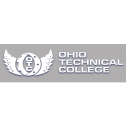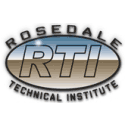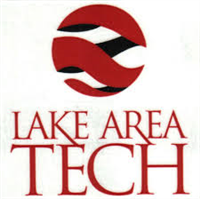What do they do?
Appraise automobile or other vehicle damage to determine repair costs for insurance claim settlement. Prepare insurance forms to indicate repair cost or cost estimates and recommendations. May seek agreement with automotive repair shop on repair costs.
Also known as:
Appraiser, Automobile Appraiser (Auto Appraiser), Automobile Damage Appraiser (Auto Damage Appraiser), Automobile Damage Estimator (Auto Damage Estimator), Damage Appraiser, Field Appraiser, Field Inspector, Insurance Appraiser, Material Damage Appraiser, Outside Physical Damage Appraiser, Physical Damage Appraiser, Reinspector, Vehicle Damage Appraiser
-
0%
Change
Ranks #26 in job growth rate20Job Openings
Ranks #19 in net job growth
Looking for colleges that offer a specific major? Use the College Match Tool to find your best-matched schools and discover your estimated Net Price!
- Bachelor's degree (41%)
- Some college, no degree (22%)
- High school diploma equivalent (14%)
- Associate's degree (12%)
- Master's degree (8%)
- Doctorate or Professional Degree (2%)
- Less than high school diploma (1%)
People in this career often have these skills:
- Writing - Communicating effectively in writing as appropriate for the needs of the audience.
- Speaking - Talking to others to convey information effectively.
- Reading Comprehension - Understanding written sentences and paragraphs in work-related documents.
- Active Listening - Giving full attention to what other people are saying, taking time to understand the points being made, asking questions as appropriate, and not interrupting at inappropriate times.
- Critical Thinking - Using logic and reasoning to identify the strengths and weaknesses of alternative solutions, conclusions, or approaches to problems.
People in this career often know a lot about:
- Customer and Personal Service - Knowledge of principles and processes for providing customer and personal services. This includes customer needs assessment, meeting quality standards for services, and evaluation of customer satisfaction.
- English Language - Knowledge of the structure and content of the English language including the meaning and spelling of words, rules of composition, and grammar.
- Computers and Electronics - Knowledge of circuit boards, processors, chips, electronic equipment, and computer hardware and software, including applications and programming.
People in this career often have talent in:
- Oral Comprehension - The ability to listen to and understand information and ideas presented through spoken words and sentences.
- Oral Expression - The ability to communicate information and ideas in speaking so others will understand.
- Written Comprehension - The ability to read and understand information and ideas presented in writing.
- Problem Sensitivity - The ability to tell when something is wrong or is likely to go wrong. It does not involve solving the problem, only recognizing that there is a problem.
- Written Expression - The ability to communicate information and ideas in writing so others will understand.
- Speech Recognition - The ability to identify and understand the speech of another person.
- Speech Clarity - The ability to speak clearly so others can understand you.
People in this career often do these activities:
- Estimate costs of goods or services.
- Examine financial records.
- Inspect motor vehicles.
- Inspect mechanical components of vehicles to identify problems.
- Inspect structural components of vehicles to identify problems.
- Prepare contracts or other transaction documents.
- Determine the value of goods or services.
- Communicate with management or other staff to resolve problems.
This page includes data from:

 Occupation statistics: USDOL U.S. Bureau of Labor Statistics Occupational Employment Statistics
Occupation statistics: USDOL U.S. Bureau of Labor Statistics Occupational Employment Statistics
 Videos: CareerOneStop, USDOL/ETA and the Minnesota Department of Employment & Economic Development
Videos: CareerOneStop, USDOL/ETA and the Minnesota Department of Employment & Economic Development








